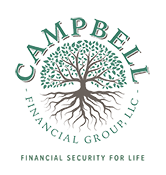Weekly Update – 8/21/2024
While taxes are a part of financial life, implementing a strategic financial plan can help manage their impact on your wealth. By understanding and implementing tax-efficient strategies, individuals and businesses can potentially reduce their tax liability. This article explores various methods to optimize tax efficiency, focusing on practical approaches to manage and reduce taxes legally and effectively. Explore these strategies aimed at potentially reducing your tax liability.
Understanding Tax Efficiency
Let’s begin with the basics. Tax efficiency refers to the practice of structuring your finances in a way that aims to optimize your tax situation. This involves taking advantage of tax-advantaged accounts, deductions, credits, and strategic planning. The goal is to retain more of your income and investments by reducing the amount of taxes you owe.
Key Strategies for Tax Efficiency
If you’re interested in exploring strategies for minimizing tax liability, here are a few options to consider:
1. Utilize Tax-Advantaged Accounts
One of the most effective ways to reduce tax liability is by using tax-advantaged accounts. These accounts provide tax benefits that can help grow your wealth over time.
- Retirement Accounts: Contributing to retirement accounts such as a 401(k) or an Individual Retirement Account (IRA) can provide immediate tax benefits. Traditional 401(k) and IRA contributions are made with pre-tax dollars, reducing your taxable income for the year. Roth IRAs and Roth 401(k)s, while funded with after-tax dollars, allow for tax-free withdrawals in retirement.
- Health Savings Accounts (HSAs): HSAs offer triple tax advantages: contributions are tax-deductible, growth is tax-free, and withdrawals for qualified medical expenses are tax-free. HSAs are available to individuals with high-deductible health plans and can be a valuable tool among strategies for managing healthcare costs in retirement.
2. Take Advantage of Tax Deductions and Credits
Tax deductions and credits may potentially reduce your tax bill. Deductions lower your taxable income, while credits reduce your tax liability dollar-for-dollar.
- Itemized Deductions: If your deductible expenses exceed the standard deduction, itemizing may potentially provide tax savings. Common itemized deductions include mortgage interest, state and local taxes, and charitable contributions.
- Tax Credits: Explore available tax credits such as the Earned Income Tax Credit (EITC), Child Tax Credit, and education credits like the American Opportunity Tax Credit and the Lifetime Learning Credit. These credits may potentially reduce the amount of tax you owe.
3. Optimize Investment Strategies
Did you know that investment decisions can have significant tax implications? Consider these strategies for managing your tax obligations:
- Tax-Loss Harvesting: This strategy involves selling investments that have lost value to offset capital gains from other investments. A tax-efficient portfolio strategy may potentially reduce taxable income.
- Asset Location: Place investments in accounts based on their tax treatment. Tax-efficient investments, like index funds and municipal bonds, can be held in taxable accounts, while tax-inefficient investments, like actively managed funds, are better suited for tax-advantaged accounts.
- Qualified Dividends and Long-Term Capital Gains: Favor investments that produce qualified dividends and long-term capital gains, as these are typically taxed at lower rates than ordinary income.
4. Plan for Charitable Contributions
Strategies for minimizing tax liability can be combined with charitable giving, depending on individual circumstances. Giving back can provide tax benefits when done strategically.
- Donor-Advised Funds (DAFs): DAFs allow you to make a charitable contribution, receive an immediate tax deduction, and recommend grants from the fund over time. This can be particularly useful for bunching contributions to exceed the standard deduction threshold.
- Qualified Charitable Distributions (QCDs): Individuals aged 70½ or older can make tax-free distributions from their IRA directly to a qualified charity. QCDs can satisfy required minimum distributions (RMDs) without increasing taxable income.
5. Consider Business Structure
For business owners, the structure of the business can impact tax liability.
- S-Corporations and LLCs: These structures can provide tax advantages, such as pass-through taxation, where business income is taxed at the individual level, which may potentially reduce the risk of double taxation.
- Expense Deductions: Take advantage of business expense deductions, including home office expenses, travel, and meals. Proper documentation is crucial to substantiate these deductions.
6. Estate Planning
You may also want to combine your estate planning efforts with strategies for minimizing tax liability. Effective estate planning can reduce taxes on the transfer of wealth.
- Gifting Strategies: Annual gifts up to the exclusion limit can reduce the size of your taxable estate.
- Trusts: Trusts can be used to manage estate taxes and provide for heirs in a tax-efficient manner. Irrevocable trusts, in particular, can remove assets from your taxable estate.
7. Stay Informed and Plan Ahead
Tax laws and regulations change frequently, so staying informed is crucial. Regularly review your financial situation and adjust your strategies as needed. Consulting with a financial advisor or tax professional can help you navigate complex tax issues and develop a comprehensive tax-efficient plan.
Are You Considering Strategies for Minimizing Tax Liability?
Optimizing tax efficiency involves a combination of strategic planning, informed decision-making, and leveraging available tax benefits. By utilizing tax-advantaged accounts, taking advantage of deductions and credits, optimizing investment strategies, planning charitable contributions, considering business structures, and implementing effective estate planning, individuals and businesses can potentially manage their tax liability. Regularly reviewing and adjusting your strategies in response to changing tax laws and personal circumstances will help maintain tax efficiency and support long-term financial goals.
If you think you or a family member would benefit from tax optimizing strategies, contact our office by calling 865-470-8584 or 423-239-6420 to schedule a no-obligation discovery call.

